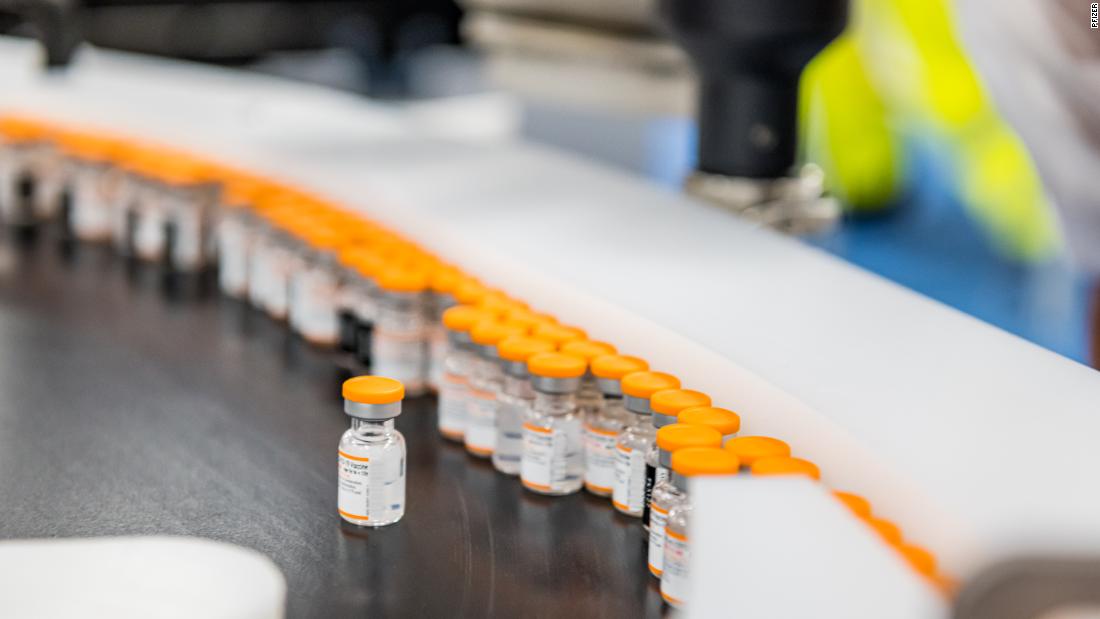Infertility is not a risk with Covid-19 vaccines for kids
Doctors and public health officials are united in assuring parents this is not a concern.
“There is no evidence that the vaccine can lead to loss of fertility. While fertility was not specifically studied in the clinical trials of the vaccine, no loss of fertility has been reported among trial participants or among the millions who have received the vaccines since their authorization, and no signs of infertility appeared in animal studies,” it adds.
“Similarly, there is no evidence that the COVID-19 vaccine affects puberty.”
Distribution of vaccines is expected to start for children 5 to 11 as soon as this week. The US Food and Drug Administration issued emergency use authorization for Pfizer’s vaccine in this younger age group on Friday, and vaccine advisers to the CDC will meet to discuss whether to recommend its use in these young kids on Tuesday.
Not a single one raised a question about effects on fertility. That’s because there’s no scientific reason to think that a vaccine could affect a child’s development to puberty or their future fertility, doctors have said repeatedly. And the committee later voted 17-0, with one abstention, to recommend emergency use authorization of the vaccine in the 5-to 11-year-old age group.
Dr. Paul Offit, one of the FDA’s vaccine advisers, a pediatrician and head of the Vaccine Education Center at Children’s Hospital of Philadelphia, explains in a video where one of the myths came from.
“This false notion was born of this letter that was actually written to the European Medicines Agency, which is like the European equivalent of the Food and Drug Administration, claiming that there was similarity between the SARS-CoV-2 spike protein, which is what you’re making an antibody response to when you get these vaccines, and a protein that sits on the surface of placental cells called syncytin-1,” he says.
“So the thinking was, if you’re making an antibody response to that spike protein of coronavirus, you’re also inadvertently making an antibody response to this syncytin-1 protein on the surface of placental cells, which would then affect fertility,” he adds.
“If it was affecting fertility, if natural infection was affecting fertility, then birth rates should have gone down, but that’s not what happened. Birth rates have actually gone up slightly. So, those are two pieces of evidence that argue against this vaccine or natural infection in any sense affecting fertility.”
Dr. Peter Marks, who heads the FDA’s vaccine division, addressed the fear at a news conference on Friday.
“These vaccines have been evaluated in a variety of studies before they made it to the clinic and they’ve been now given to many, many millions of people. There’s no evidence that there is an adverse effect on fertility of these vaccines, and there’s no reason why one would suspect that an mRNA vaccine would have this,” Marks said.
Both Pfizer’s vaccine and Moderna’s vaccine are called mRNA vaccines. They use genetic material called messenger RNA or mRNA to instruct the body’s own cells to make a little piece of the coronavirus spike protein, which in turn trains the body to recognize it and attack it. Some scientists have described mRNA as being like a Snapchat message — it delivers instructions to cells and then disappears.
“The way these vaccines work as they go into the cell, the cell makes the protein for a brief period of time — that is, on the surface of the cell. The body makes an immune response. And the original vaccine, the mRNA component, is degraded. It’s not incorporated into the genetic material of a person. There’s no way for that to happen,” Marks said.
“So these vaccines are ones that we’re pretty comfortable are going to be reasonable to use in children. I wouldn’t hesitate to give them, had I had still younger children in this age group, (I) would not hesitate a second to give my child one of these vaccines.”
People who worry that vaccines might cause infertility in their children are not alone. During polio vaccination campaigns in Nigeria in the 1990s and early 2000s, many communities resisted because of rumors the vaccine was actually a disguised attempt to sterilize people to reduce the population.
![]()


